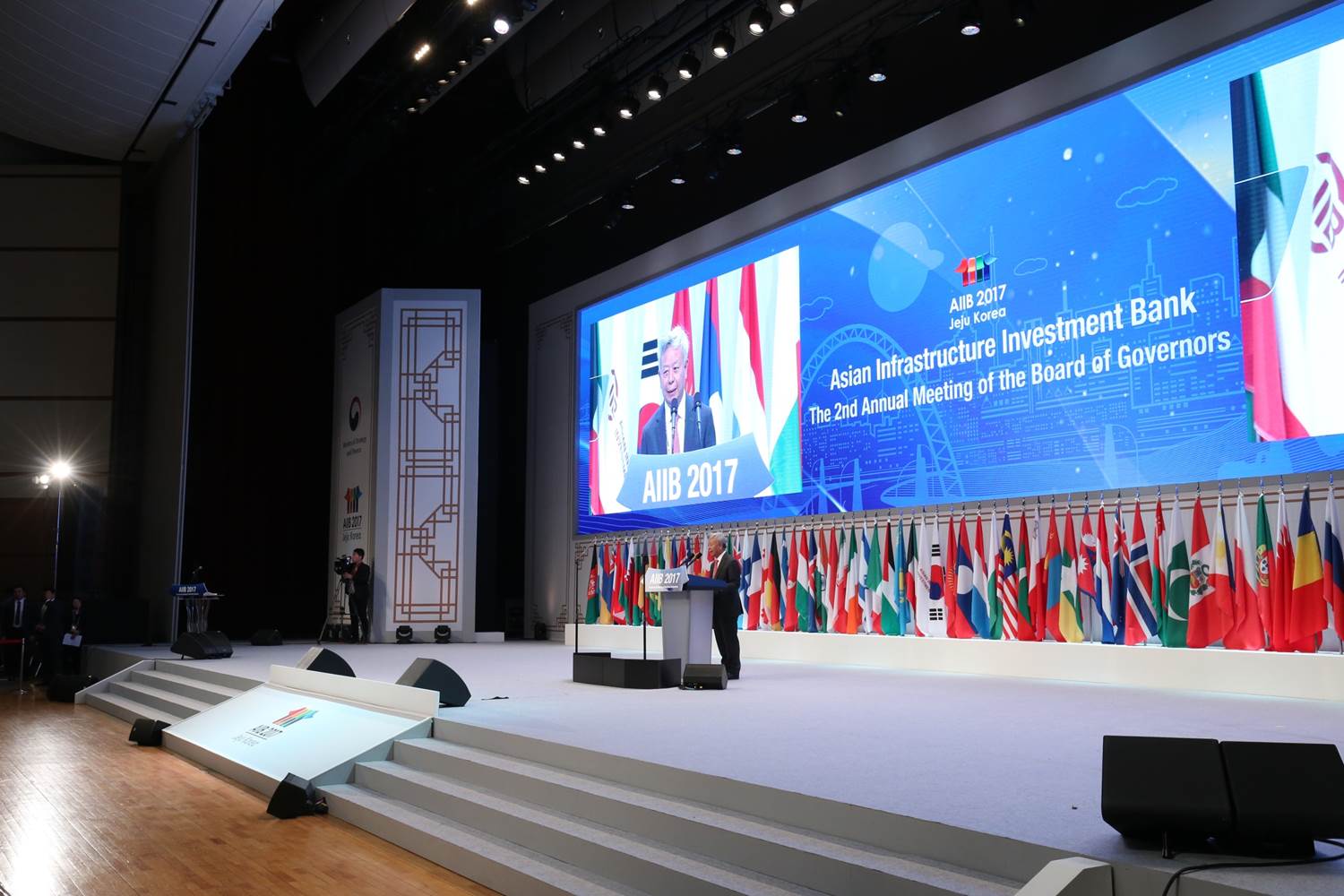The Asian Infrastructure Investment Bank (AIIB) has announced its first equity investment, signing off on a US$150 million commitment to the India Infrastructure Fund, in a move aimed to helping attract much-needed private investment capital for infrastructure projects in India.
The financing was approved during the second annual meeting of the board of governors, which was held in Jeju, Republic of Korea, from June 16 to 18.

AIIB meeting, Jeju, Korea. Photo courtesy of https://www.aiib.org/en/index.html
The bank also announced that next year's board of governors meeting will be held in Mumbai, in June 2018.
“We appreciate the strong support provided by the Indian Government,” says AIIB vice president & corporate secretary, Danny Alexander. “It’s fitting that we bring the meeting to India next year, where we can deeply engage with local business and draw on the infrastructure expertise that India can offer.”
The choice of Mumbai as host venue not only reflects the importance of India to the AIIB, but also the desire on the part of the AIIB not to be viewed as an arm of the One Belt, One Road initiative.
Indian Prime Minister Narendra Modi has at times been a vociferous critic of Belt Road initiative, and what he sees as the projection of Chinese influence in the region at the expense of the sovereignty of other countries. India did not send a delegation to the Belt & Road Summit held in Beijing in mid-May.
But AIIB President Jin Liqun has been keen to stress the independence of his bank from the Belt Road initiative and the importance of working closely with other entities such as the World Bank, the Asian Development Bank and national development institutions.
India is the bank’s second largest shareholder and is becoming an increasingly important geography for AIIB investments.
“Approving our first equity investment is another milestone for the bank and will enhance our potential to source and fund high quality, private sector projects,” comments D J Pandian, vice president and chief investment officer, AIIB.
The India Infrastructure Fund aims to invest in domestic mid-cap infrastructure companies, and the US$150 million commitment from the AIIB will help expand the bank’s equity and loan deal-sourcing pipelines in the private sector. The initiative will benefit local infrastructure development by enhancing private capital inflows from global long-term investors, such as public pension funds, endowments and insurance companies. Catalysing private capital is broadly acknowledged as a critical component to addressing the infrastructure gap in Asia.
Support for climate change agreement
In his opening address at the AIIB meeting in Jeju, Jin Liqun took the opportunity to reaffirm the role of the bank in helping its members meet their Nationally Determined Contributions under the Paris Agreement on climate change.
“Ours is an MDB (multilateral development bank) whose members from across the world are all signatories to the Paris Agreement,” he says. "The bank has an important role to play as a facilitator and supporter of the Paris Agreement, and we thus place great emphasis on helping our members transition towards a low-carbon future. Furthermore, there are no coal projects in our pipeline, and we will not consider any proposals if we are concerned about their environmental and reputational impact.”
During the meeting, the board of governors also adopted resolutions approving three applicants to join the bank, bringing total approved membership to 80. The new members are Tonga, Argentina and Madagascar.
The governors also signed off on two loans to Georgia and Tajikistan. A US$114 million loan for the Georgia Batumi Bypass Road Project is the bank’s first loan to Georgia, and is part of a co-financing with the Asian Development Bank.
The project aims to improve regional connectivity and the efficiency of road transport along the East–West Highway in Georgia. The project comprises a new two-lane road approximately 14.3km long, in a key section of the East–West Highway that skirts the port city of Batumi.
A second US$60 million loan was signed for the Tajikistan Nurek Hydropower Rehabilitation Project Phase I, this time as part of a co-financing with the World Bank. The project aims to rehabilitate and restore the generating capacity of three units of the Nurek hydropower plant, improve their efficiency, and strengthen the safety of Nurek dam operations.









